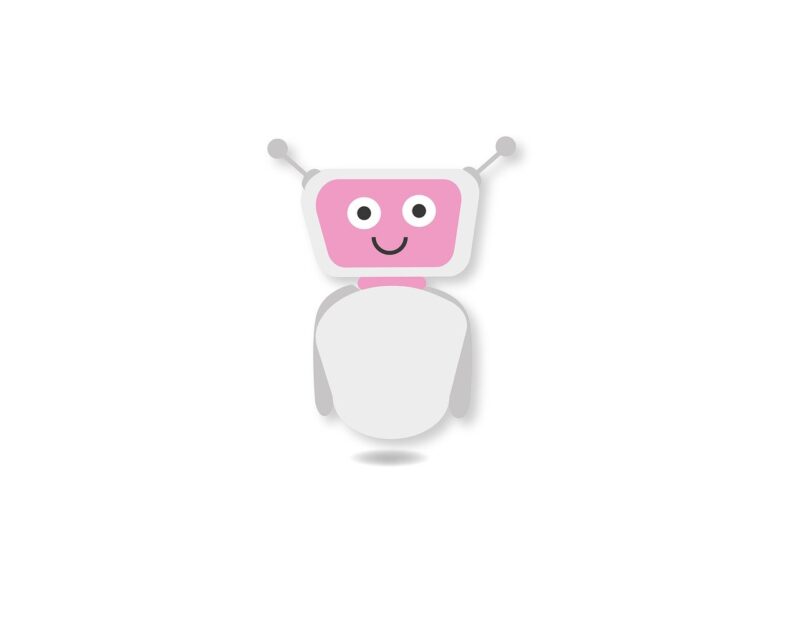
Artificial Intelligence (AI) chatbots have revolutionized online communication, creating new ways for businesses and consumers to connect. From providing instant customer support to personalizing user experiences, chatbots are reshaping our interactions in the digital world.
1. Introduction to AI Chatbots
AI chatbots are software applications that use artificial intelligence to simulate conversations with users. They operate through text or voice interactions, assisting with various tasks ranging from customer service to general inquiries. As businesses increasingly adopt AI-driven solutions, the use of chatbots is rapidly growing, leading to enhanced efficiency and improved customer satisfaction.
In this article, we’ll explore the different types of chatbots, their applications, and how they are transforming communication across industries.
2. Types of AI Chatbots
Chatbots can generally be categorized into two main types: Rule-based chatbots and AI-powered chatbots.
- Rule-based chatbots: These chatbots follow predefined set rules to respond to user inputs. They provide limited responses based on keywords and patterns, making them suitable for straightforward tasks but lacking in flexibility.
- AI-powered chatbots: Using sophisticated AI algorithms, these chatbots can understand natural language processing (NLP) and machine learning, allowing them to comprehend context and engage in more dynamic conversations. They can learn from interactions and improve their responses over time, delivering personalized experiences to users.
Both types of chatbots have unique advantages and can be effective depending on the desired outcome of the interaction.
3. The Impact of Chatbots on Customer Experience
Businesses are leveraging AI chatbots to enhance customer experience in various ways:
- 24/7 Availability: Unlike human agents, chatbots are available around the clock. This constant availability means that customers can get answers to their inquiries at any time, improving satisfaction and reducing frustration.
- Instant Response Times: Chatbots can process inquiries in real-time, providing immediate responses to users. This instant gratification creates positive experiences for customers who value efficiency.
- Personalization: AI chatbots analyze user data and behavior, enabling them to deliver personalized recommendations and solutions. This tailored approach enhances user engagement and loyalty.
- Cost Efficiency: By automating repetitive tasks, businesses can significantly reduce operational costs associated with human customer support teams. This allows companies to allocate resources more effectively while still meeting customer needs swiftly.
The integration of chatbots into customer service models is a clear demonstration of how AI technologies can lead to improved outcomes for businesses and customers alike.
4. AI Chatbots in Various Industries
AI chatbots are being adopted across multiple industries, each using them to achieve specific goals:
- E-commerce: In the online retail space, chatbots assist with guiding customers through their shopping journey, answering product-related questions, and providing personalized recommendations. Chatbots can also streamline the checkout process, minimizing cart abandonment rates.
- Healthcare: Healthcare providers utilize chatbots for appointment scheduling, symptom checking, and patient follow-ups. This ensures that patients receive timely information and healthcare services without delays.
- Travel and Hospitality: Travel companies leverage chatbots to assist travelers with booking flights, finding accommodation, and providing local recommendations. This enhances the travel experience and ensures customer support is always available, regardless of time zones.
- Banking and Finance: Financial institutions use chatbots to help customers manage their accounts, perform transactions, and locate information quickly. With the rise of online banking, chatbots offer customers simpler, more efficient ways to access banking services.
As each industry continues to discover the benefits of AI chatbots, their role in enhancing communication will only grow stronger.
5. Challenges and Limitations of Chatbots
While AI chatbots offer numerous advantages, they also present challenges that businesses must address:
- Understanding Complex Queries: AI-powered chatbots can struggle with complicated or nuanced user requests, leading to misunderstandings. Continuous training and updates are necessary to improve their comprehension abilities.
- Maintaining a Human Touch: Some users may prefer human interaction over automated responses, especially for sensitive issues. Businesses should recognize when to escalate interactions to human agents for better customer care.
- Security Concerns: Chatbots may pose security risks if not configured correctly. It’s critical for businesses to implement strong security measures to protect user data and privacy when using chatbots.
By dissecting these challenges, businesses can implement more effective strategies that maximize the potential of AI chatbots while minimizing drawbacks.
6. The Future of AI Chatbots
As AI technology continues to evolve, so will the capabilities of chatbots. Future trends may include:
- Greater Integration with Other Technologies: We can anticipate enhanced compatibility between chatbots and other AI technologies, such as virtual assistants, voice recognition systems, and more, creating seamless user experiences.
- Multilingual Capabilities: Future chatbots will likely cater to users in multiple languages, making them accessible to a broader audience while enhancing global communication opportunities.
- Deeper Emotional Understanding: Advances in machine learning may enable chatbots to interpret users’ emotions better and respond with empathy, bridging the gap between human and machine communication.
The evolving landscape of AI chatbots promises to enhance our digital interactions in remarkable ways, leading to more intuitive, responsive, and user-centric online experiences.
7. Conclusion
AI chatbots are undeniably shaping the way we interact online, offering efficiency, convenience, and personalization. By transforming customer interactions across various industries, chatbots are set to play a central role in the future of communication. As we navigate the digital world, embracing this technology will be essential for businesses to improve engagement, enhance customer satisfaction, and foster innovation in user experiences.
In conclusion, the way we communicate is evolving, and AI chatbots are at the forefront of this transformation. The potential they hold is immense, making it a fascinating field to watch in the coming years.






